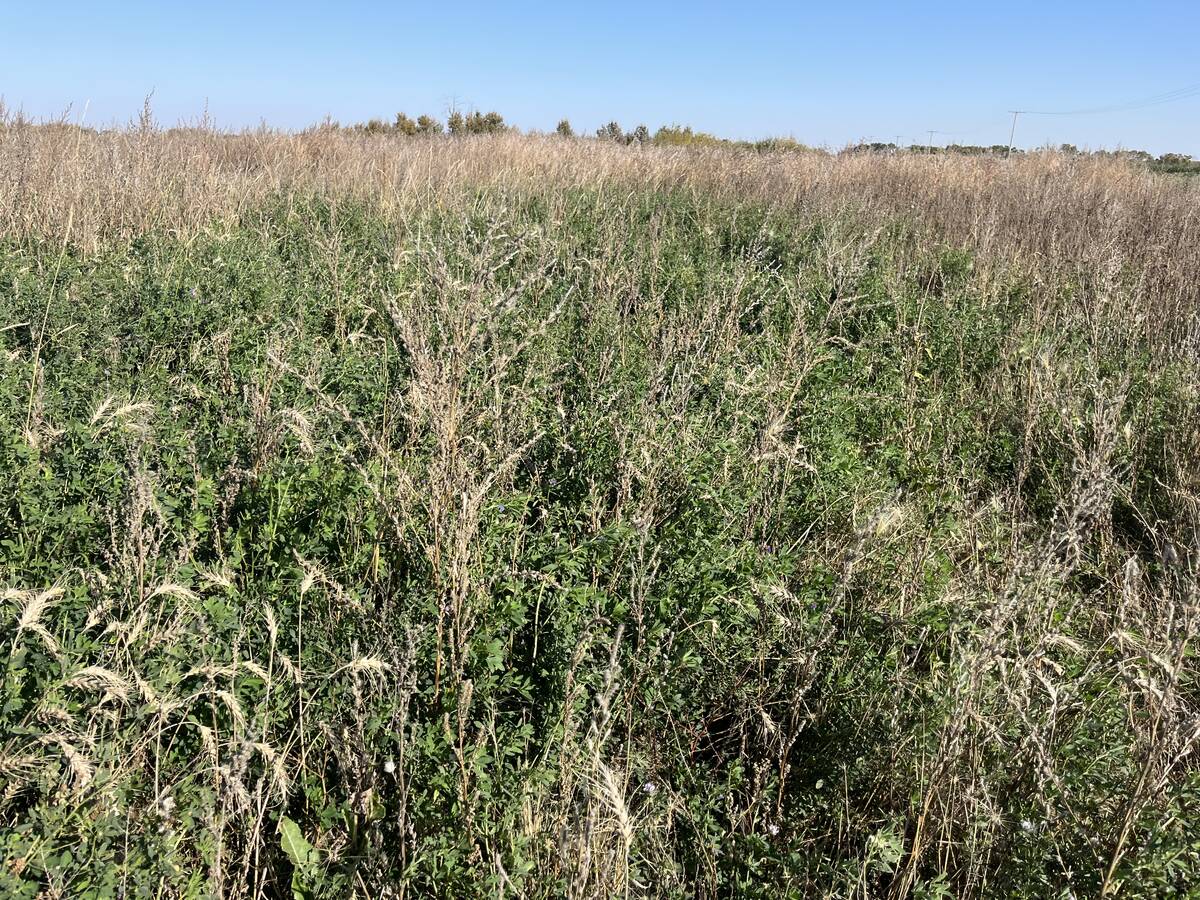For years, those against animal cruelty have fretted that Canada’s rules governing animals transported to slaughter are weak and poorly enforced.
The angst notched up when a call by the Canadian Federation of Humane Societies that humane treatment of animals be a pillar of the new five-year national agricultural policy was ignored by federal and provincial ministers.
Last week, the CFHS took advantage of the political controversy over federal proposals to shift more food safety inspection to industry. It called for an investigation into the conditions faced by animals during slaughter and transport to slaughter.
Read Also

Dormant seeding forages frees up farmer time and gets ahead of weeds
Dormant seeding isn’t common practice and can appear daunting, but there are some techniques to give Manitoba farmers an edge
“The CFHS and its member societies strongly recommend that the auditor general conduct a performance audit of the animal welfare legislative duties of the CFIA (Canadian Food Inspection Agency) and the ministry of agriculture,” said a Sept. 3 letter from CFHS chief executive officer Steve Carroll to auditor general Sheila Fraser.
“Public safety, reliable access to safe food and the humane treatment of animals are in serious peril.”
Shelagh MacDonald, program director for the humane societies’ federation, said the issue has been percolating for several years.
“Canada’s humane treatment of animals record has been abysmal and the fact that it is not mentioned in the last agriculture policy framework is disgraceful considering that many other countries are moving on this file.”
But the animal welfare issue received little notice until the controversy over possible transfer of some food safety inspections to industry surfaced during the past month in the wake of the listeriosis meat recall.
“Frankly, when we saw this story develop, we took a bit of a leap from the government backing off food safety inspections to saying, ‘yikes, if that is their attitude to food safety, what will they do on a lower priority item for them like treatment of animals?’ ” she said.
In his letter to Fraser, Carroll said there is evidence that there are too few CFIA animal welfare compliance officers and they often are negligent in taking action once a violation is found.
He noted that transport of sick, injured or distressed animals is prohibited under CFIA rules, yet the agency’s statistics suggest nearly 20,000 pigs and cattle and two million birds arrive at slaughter plants in a “compromised” state, including many that have died in transit.
“The health and welfare of animals is a public good and must be overseen and taken seriously by the government, particularly for animals raised to feed our nation,” he wrote. “It is our view that (government) has not taken this role seriously to date.”
Carroll noted that Australia, New Zealand and the United Kingdom have tightened animal welfare rules and appointed councils to advise government.
“In contrast, Canada’s next five-year policy framework policy does not even mention animal welfare,” he wrote. “This has to change.”
The auditor general’s office did not immediately respond to the request for an investigation.














